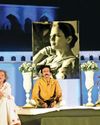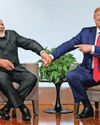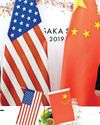Thanks to self-testing devices, precision medicine and new vaccines, cancer care is changing and how

During his year-long treatment for cancer at the All India Institute of Medical Sciences (AIIMS) in Delhi, Tushar Rishi, 20, felt like a mere speck. The hospital is always abuzz with patients, says the Ranchi resident. A second-year student of English literature at Hindu College in Delhi, Rishi was diagnosed with osteosarcoma in his left knee at the age of 16. He had eleven rounds of chemotherapy and a surgery. “Everyone at AIIMS is super efficient, but the patient volume in the hospital is humongous, and that makes things difficult for everyone,” says Rishi, who wrote The Patient Patient based on his cancer experience.
Cancer care is poorly organised in India, particularly in the public sector, says Dr Shah Alam Khan, professor and orthopaedic oncologist at AIIMS. “As a result, a huge chunk of patients from north and northeast India come to us,” he says. “We have patients from Bihar and Madhya Pradesh who have moved to Delhi for treatment. They manage for two or three months. Once the money gets exhausted, they are on the streets.” Khan calls these patients cancer refugees.
Improved cancer diagnosis and care in smaller towns seem to be the need of the hour. The overcrowded cancer train from Bathinda to Bikaner is a running reminder of the grave situation. There are about 12,000 cancer patients in the Malwa region of Punjab alone, thanks to exposure to known carcinogens like chemical fertilisers and pesticides. Lack of affordable health care makes these patients travel to Bikaner in Rajasthan for treatment.
This story is from the November 25, 2018 edition of THE WEEK.
Start your 7-day Magzter GOLD free trial to access thousands of curated premium stories, and 9,000+ magazines and newspapers.
Already a subscriber ? Sign In
This story is from the November 25, 2018 edition of THE WEEK.
Start your 7-day Magzter GOLD free trial to access thousands of curated premium stories, and 9,000+ magazines and newspapers.
Already a subscriber? Sign In

The female act
The 19th edition of the Qadir Ali Baig Theatre Festival was of the women and by the women

A SHOT OF ARCHER
An excerpt from the prologue of An Eye for an Eye

MASTER OF MAKE-BELIEVE
50 years. after his first book, Jeffrey*Archer refuses to put down his'felt-tip Pilot pen

Smart and sassy Passi
Pop culture works according to its own unpredictable, crazy logic. An unlikely, overnight celebrity has become the talk of India. Everyone, especially on social media, is discussing, dissing, hissing and mimicking just one person—Shalini Passi.

Energy transition and AI are reshaping shipping
PORTS AND ALLIED infrastructure development are at the heart of India's ambitions to become a maritime heavyweight.

MADE FOR EACH OTHER
Trump’s preferred transactional approach to foreign policy meshes well with Modi’s bent towards strategic autonomy

DOOM AND GLOOM
Democrats’ message came across as vague, preachy and hopelessly removed from reality. And voters believed Trump’s depiction of illegal immigrants as a source of their economic woes

WOES TO WOWS
The fundamental reason behind Trump’s success was his ability to convert average Americans’ feelings of grievance into votes for him

POWER HOUSE
Trump International Hotel was the only place outside the White House where Trump ever dined during his four years as president

DON 2.0
Trump returns to presidency stronger than before, but just as unpredictable